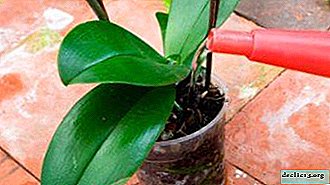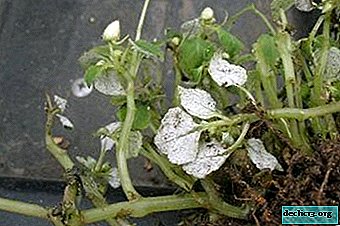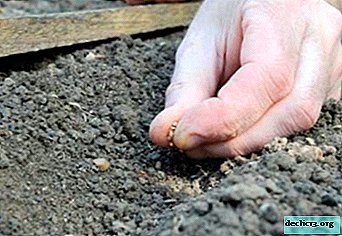How to clean the pan from soot at home

Many housewives face a problem when, due to constant use, kitchen utensils lose their original appearance. This is due to the appearance of soot on the inner and outer walls of the dishes. And most of all she is interested in how to clean the pan from soot at home.
Many people do not like this development of events, because no one wants to part with their favorite kitchen helpers. An important role in this matter is played by cleanliness in the kitchen, since well-groomed dishes are the card of any cook. This article is useful for housewives who want to put their pans in order.
Nagar - a combination of old fat and soot. Under the influence of high temperature, this tandem emits carcinogens, which are harmful to human health. With the further use of such utensils, food cooked in it slowly destroys the health of family members.
The results of numerous studies have shown that chronic fat in combination with soot and soot is a springboard for the development of cancer. Their effect on the body is represented by disturbances in the work of internal organs and slow intoxication. Therefore, leave the problem unattended.
Proper cleaning of the pan from soot provides a competent choice of cleaning agent, taking into account the material from which the product is made. For cooking, housewives use cast-iron, aluminum, ceramic and teflon cookware. Each of these types requires an appropriate cleaning method. Using the wrong product could result in damage to the product’s work surface.
Safety Precautions

Before proceeding to consider effective ways to clean the pan from soot at home, let's talk about security measures. Often it is impossible to eliminate contamination without the help of a cleaning agent. And the composition of the chemical industry products includes substances that are not useful for the body. Therefore, when cleaning the pan, follow these guidelines.
- Wash dishes with rubber gloves. A variety of models are sold, differing in size, thickness of rubber and the presence of an inner tissue layer.
- When using purchased chemistry, do not forget about a respirator. If not, use a multi-layer cloth dressing. Remember, aggressive substances in cleaning products affect not only dishes, but also your respiratory organs.
- During the procedure using chemistry in the air, unwanted impurities will necessarily appear. Therefore, it is recommended to clean the dishes in a ventilated area.
- If there are children or pets in the house, make sure that they do not visit the kitchen during the procedure.
By listening to these recommendations, protect your hands, lungs, and stomach from negative effects. And this is important, because the scale in the pan compared to health is a mere trifle.
Purchased anti-carbon chemistry
The chemical industry does not stand still, so the housewives have access to a wide range of products aimed at combating carbon and obese fat. Such products are very effective and help to quickly remove plaque.
For many years, the use of household chemicals to control carbon deposits, the housewives have determined by means of tests and experiments that provide the best result. These are Mr. Muscle, Schumanit, AmWay, Frosch, Helper and Oxyday cleaning products.
The listed products provide the best result provided that you follow the instructions on the packaging. The principle of operation to pain is simple: the solution is applied to the surface of the pan, wait several hours, and then removed with a kitchen sponge.
Despite its high efficiency, household chemicals have several serious drawbacks. These products are toxic and pose a potential health hazard, and pan cleaning should be done with rubber gloves in a room with windows open.
The disadvantages of the purchased chemistry are well known to housewives, so many prefer folk remedies, which, with the right approach, provide a similar result, but are safer. They will be discussed further.
Folk remedies against carbon deposits

A good frying pan is an indispensable thing, which, with proper care and careful handling, lasts more than one year and makes the family happy with wonderful dishes. And since carbon deposits appear on the surface during cooking, the housewives have come up with many ways to safely clean the pan. Consider popular techniques. For convenience, divide the pan into categories depending on the material of manufacture.
Non-stick pan
Cleaning a non-stick pan requires the most careful approach. One incorrect movement and damage appears on the surface, as a result of which the dishes become unusable.
- Dishwasher. Modern household appliances support a function that easily copes with burnt fat at the initial stage. If it is a ceramic product with a non-stick coating, a liquid cleaner is used to clean it to prevent scratches. Powder products are not suitable.
- Digestion. Digestion helps to cope with soot in such a pan using a solution of 3 liters of water, 50 grams of soda ash and a glass of detergent. Dip the frying pan in a container with a solution, boil over medium heat for half an hour, and then wipe the surface with a soft sponge.
- Coca Cola. This method has proven effective in practice more than once. To remove carbon deposits, pour a little carbonated drink into the pan and boil for half an hour. To remove carbon deposits from the outside, boil a skillet in the drink.
Regardless of which of these methods you prefer, the pan will return its former attractiveness and cleanliness.
Teflon-coated pan
If improperly used, a carbon deposit appears on the surface of the pan with a Teflon coating, which eliminates all the benefits. The problem is aggravated by the fact that mechanical methods are not suitable for cleaning such a product. How to be? There are several solutions.
- Soaking. The method is suitable for removing slightly compacted soot. Dip the product in a container of hot water and leave it overnight. In the morning, without much effort, clean the pan from soot.
- Food baking powder. Comes to the rescue in the case of chronic pollution. Mix two tablespoons of powder with a glass of water. Pour the resulting solution into a pan, put on a stove and boil. When the liquid has cooled, remove carbon deposits with a sponge.
- Soda and detergent. To remove old stains, mix a glass of detergent with three tablespoons of soda and dilute with three liters of water. Immerse the pan in the resulting composition and boil for half an hour. When the liquid has cooled, wipe the surface of the pan with a sponge. By the way, chopped laundry soap is a great alternative to a detergent.
- Lemon acid. Pour water into a spacious pan, add a bag of citric acid, lower the product and boil for a third of an hour. After the time has passed, leave the pan in the solution until the liquid cools. Then walk along the surface with a foam sponge.
As for the outside, everything is simpler here, since the surface is less delicate. To eliminate impurities, purchased chemistry in the form of a gel or cream is ideal.
Old cast iron skillet with heavy soot
The appearance of soot on the surface of a cast-iron pan is inevitable, especially if the dishes are used regularly. Fortunately, it’s easiest to clean a kitchen assistant made of this metal. And over the many years of operation of such utensils, many cleaning methods have appeared.
- Lemon acid. Pour water into the pan, add citric acid at the rate of 1 tablespoon per liter of liquid and boil the dishes in the resulting mixture for at least 15 minutes. Then gently scrape off the soot or remove with a cleaning sponge.
- Activated carbon. Using a pharmacy product is one of the simplest and most affordable ways. Moisten the surface of the pan and sprinkle with activated carbon powder obtained by crushing tablets. Wash in an hour using household cleaning products.
- Vinegar. Mix vinegar with water in a ratio of 1 to 3, pour the solution into a frying pan, boil over low heat and boil for 3 hours. During this time, all pollution will easily go away. In order not to be poisoned by vinegar vapors, carry out the procedure in a ventilated room.
- Sand. Pour some sand into the pan and place on the stove. Turn on the minimum fire. After 2 hours pour sand and rinse the product with water. No additional cleaning is required. I advise you to carry out the procedure only in fresh air, since hot sand gives off an unpleasant odor.
- Blowtorch. Light the lamp and direct the flame into the pan. After a minute, the soot itself will fall off. I do not advise cleaning in this way at home, because jokes with fire are bad.
If you do not disdain with more radical methods, use a drill with a metal nozzle. Performing quick and easy movements, clean the surface effortlessly. In this way, I advise you to clean in the garage, but not in the kitchen.
Aluminum pan
Returning the original appearance to an aluminum pan is more difficult than a cast iron one. This metal is not friendly with aggressive household chemicals and powder cleaners. You can solve the problem only in the following way.
- Pour 10 liters of water into a large container, add 500 grams of soda ash, 100 grams of office glue and grated bar of laundry soap. Mix everything thoroughly.
- Dip the pan into the solution and boil for half an hour, then leave it in the liquid until morning. Rinse with water and wipe with a cloth.
To clean the aluminum pan from the outside, abrasives are suitable - a metal brush, salt or sand. If scratches appear on the surface during cleaning, polish the appliance with soda.
Ceramic pan
The ceramic product is demanding in maintenance, and the removal of old pollution is time-consuming, therefore it is recommended to clean it in a timely manner. If a problem occurs, the following tools will help in solving the problem.
- Medical alcohol. Most effective in dealing with small pollution. Dampen a cotton pad in alcohol and wipe the surface of the pan, then rinse with water.
- Digestion. For complex cleaning, pour water into the pan, add detergent, lower the pan and boil for 30 minutes. After the time, rinse with water.
A variety of detergents for ceramic dishes are sold that easily cope with soot. And although their cost is high, compared to the price of new dishes it’s a penny. According to online reviews, they recommend Organics or Frosch.
Useful Tips

Having got rid of carbon deposits on the surface of the pan, I advise you to take several preventive measures that will help prevent the appearance of contaminants in the future.
- Clean the surface of the dishes on all sides immediately after cooking, without waiting for complete cooling.
- If you wash pans in a dishwasher, carry out manual cleaning once a month. With the naked eye, you can easily notice the appearance of burning in the initial stage and easily eliminate it.
- Try to use less cleaning powders, iron sponges and other scratching improvised means. This will reduce the chance of scratches.
- If a new frying pan comes into your arsenal, be sure to treat the inside with sunflower oil before use, and then wash it with detergent.
- Regardless of the material, use a plastic or wooden spatula during cooking. If the tongs are more to your liking, choose a device with protection at the ends.
Now you know all the subtleties of cleaning the pan from soot at home and how to prevent it from appearing. Try to prevent such contaminants from appearing on the surface of the dishes, because this spoils the appearance of the utensils and causes harm to health. Good luck

















